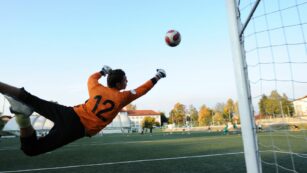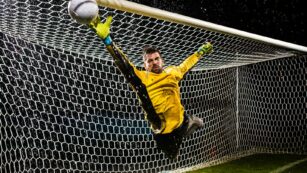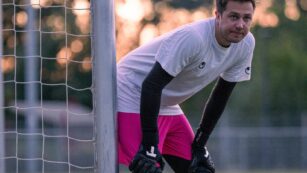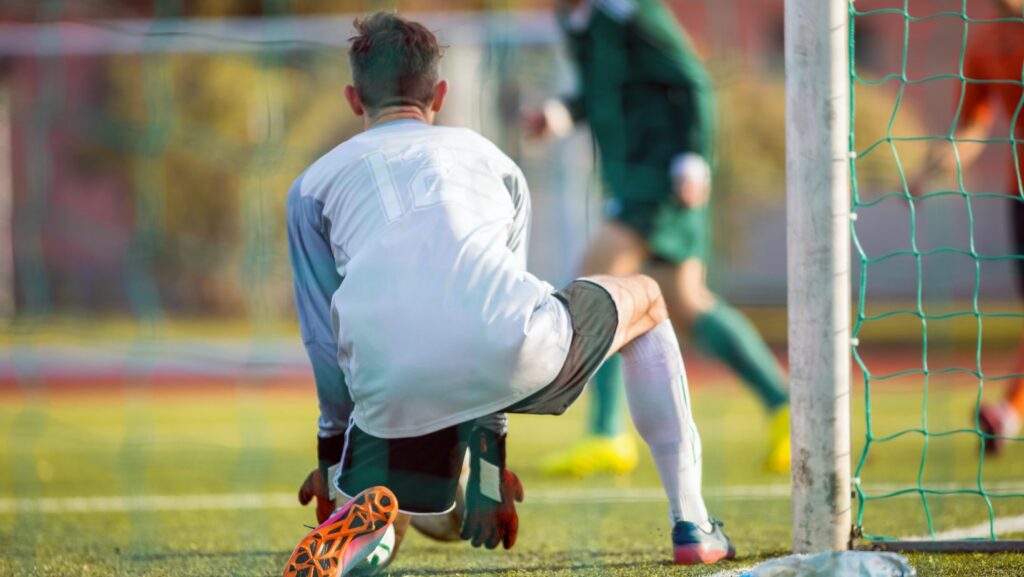In the world of soccer, the goalkeeper stands as the last line of defense, tasked with the crucial job of preventing goals. This position requires a unique blend of physical prowess and mental acuity. A skilled goalkeeper not only guards the net but also orchestrates the defense, making split-second decisions that can change the course of a match.
What Are the Skills of a Goalkeeper
Goalkeepers require a diverse skill set to excel in their position. Each skill plays a vital role in their performance during matches.
Fundamental Skills Required
Positioning and Angling
 Positioning and angling are vital skills for goalkeepers. Effective positioning involves placing oneself in the optimal spot to maximize save potential. Understanding angles helps goalkeepers anticipate where shots may land. Goalkeepers must analyze the attacker’s body posture, the ball’s location, and the distance to make quick decisions. By maintaining a balanced stance, they can shift their weight easily to respond to shots more efficiently.
Positioning and angling are vital skills for goalkeepers. Effective positioning involves placing oneself in the optimal spot to maximize save potential. Understanding angles helps goalkeepers anticipate where shots may land. Goalkeepers must analyze the attacker’s body posture, the ball’s location, and the distance to make quick decisions. By maintaining a balanced stance, they can shift their weight easily to respond to shots more efficiently.
Handling and Catching
Handling and catching are essential for maintaining possession and preventing rebounds. Goalkeepers must possess strong hand-eye coordination to secure the ball effectively. Using both the palms and fingertips, they can adjust to various types of shots, including low, high, and swerving balls. Strong grip strength plays a crucial role, enabling them to hold onto the ball, even under pressure. Quick reactions enhance a goalkeeper’s ability to catch or parry incoming shots while ensuring they remain ready for follow-up plays.
Essential Tactical Skills
Decision Making & Communication with Defense
 Decision making is critical for a goalkeeper, as it influences the outcome of plays. Goalkeepers must quickly evaluate scenarios, deciding whether to come off their line, initiate a challenge, or stay grounded. Split-second choices impact their ability to stop shots or intercept crosses, and maintaining composure under pressure is key to successful outcomes. For instance, good decision making helps prevent opponents from capitalizing on scoring opportunities.
Decision making is critical for a goalkeeper, as it influences the outcome of plays. Goalkeepers must quickly evaluate scenarios, deciding whether to come off their line, initiate a challenge, or stay grounded. Split-second choices impact their ability to stop shots or intercept crosses, and maintaining composure under pressure is key to successful outcomes. For instance, good decision making helps prevent opponents from capitalizing on scoring opportunities.
Communication with defense strengthens a team’s overall performance. Goalkeepers must vocally direct defenders, providing clear instructions during set pieces and dynamic plays. Effective communication fosters trust and collaboration, ensuring defenders are aware of threats and positioning. For example, a goalkeeper calling for a defender to step up can prevent attackers from finding space in the box.
Game Awareness
Game awareness allows goalkeepers to anticipate the flow of play. They must monitor opposing players’ movements, keeping track of potential threats in real-time. Recognizing changes in pace and positioning enables goalkeepers to make informed decisions about shot-stopping, distribution, and positioning. Game awareness also involves reading the game’s dynamics, which assists in predicting where the ball will likely go.
Physical Attributes
 Goalkeepers require several essential physical attributes to excel in their position. These attributes include strength, agility, and speed.
Goalkeepers require several essential physical attributes to excel in their position. These attributes include strength, agility, and speed.
-
Strength: Goalkeepers must possess upper and lower body strength to dive, jump, and withstand physical challenges from opposing players. Strong legs enhance explosive movements when pushing off from the goal line.
-
Agility: Agility enables goalkeepers to change direction quickly and efficiently. It enhances their ability to reach for low and high shots, as well as to adjust their positioning in response to attacking plays.
-
Speed: Speed is crucial for goalkeepers when closing down attackers and reacting to through balls. Quick reactions allow for effective shot-stopping and increased chances of intercepting passes before they reach a forward.
-
Endurance: While goalkeepers may not run as much as outfield players, they still require good endurance to maintain focus and performance throughout the match. This fitness allows them to remain alert and responsive during long periods of inactivity.
-
Flexibility: Flexibility is vital for preventing injuries and aiding in the execution of dives and stretches. A flexible goalkeeper can reach difficult shots and recover quickly after attempting saves.
These physical attributes collectively enhance a goalkeeper’s capability to perform at an optimal level, directly affecting their contributions to the team’s defensive strategies.

